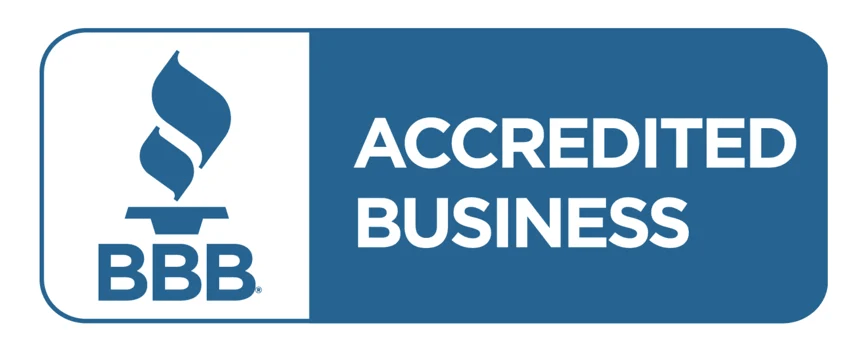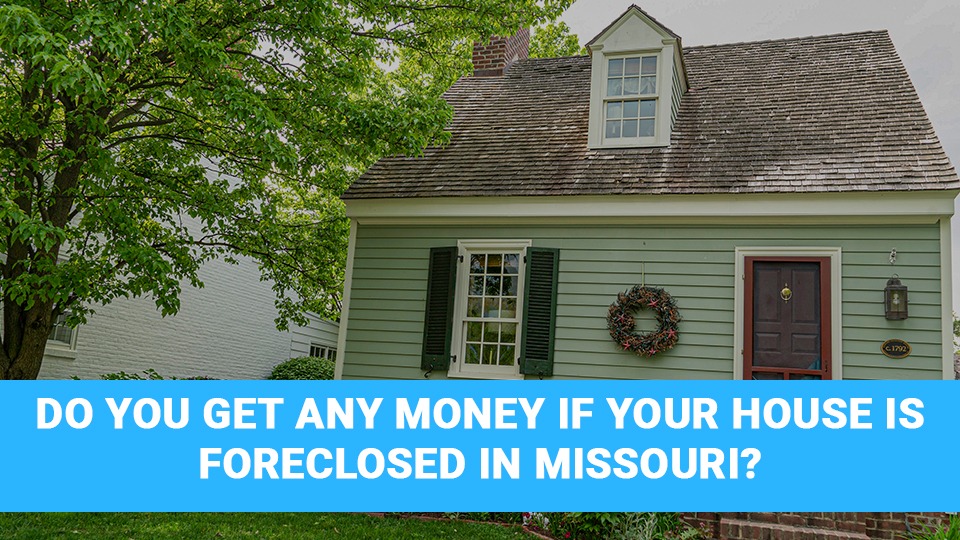Do You Get Any Money if Your House Is Foreclosed in Missouri
Foreclosure can have a significant impact on your financial situation, leaving many homeowners wondering if they will receive any money if their house is foreclosed in Missouri.
Understanding the foreclosure process and the laws surrounding it is crucial in determining what you can expect financially. It’s also helpful if you decide to sell your house to avoid foreclosure in Missouri.
How Does Foreclosure Work in Missouri?
Foreclosure in Missouri follows a specific process. It is essential to understand the steps involved to grasp the financial implications fully. Here is a breakdown of the foreclosure process in Missouri:
- Notice of Default: When you fall behind on your mortgage payments, your lender will send you a notice of default, informing you of the missed payments and the amount due.
- Missouri Judicial Foreclosure: Missouri is a judicial foreclosure state, meaning the lender must file a lawsuit to foreclose on your property. This process involves the lender filing a complaint and serving you with a summons and complaint.
- Foreclosure Auction: If the court grants a foreclosure judgment, your property will be scheduled for a foreclosure auction. The auction allows the lender to recover the outstanding balance on the mortgage by selling your home to the highest bidder.
- Redemption Period: Missouri law provides a redemption period after the foreclosure sale, during which you have the opportunity to reclaim your property by paying the foreclosure sale price plus any additional costs.
Missouri Foreclosure Laws
Missouri has specific foreclosure laws in place to protect homeowners during the foreclosure process. These laws aim to provide you with certain rights and opportunities to mitigate the financial impact of foreclosure. Here are some key Missouri foreclosure laws:
Missouri law allows homeowners to cure the default by catching up on their missed payments, plus any applicable fees and costs, within a specific timeframe. Before initiating foreclosure proceedings, your lender must provide you with a notice of intent to sell your property. This notice should include information about the foreclosure auction and your rights as a homeowner.
Missouri law protects homeowners from deficiency judgments. This means that if the foreclosure sale price is less than the outstanding balance on your mortgage, the lender cannot seek a judgment against you for the difference.
What Happens to My Home's Equity During Foreclosure?
During the foreclosure process, your home's equity becomes a crucial consideration. Home equity refers to the difference between the market value of your property and the outstanding balance on your mortgage. Here are two possible scenarios regarding your home's equity during foreclosure:
- Positive Equity: If your home has positive equity, it means the market value exceeds the outstanding mortgage balance. In this case, you may be able to sell your home before or during the foreclosure process and use the proceeds to pay off the mortgage, potentially leaving you with money left over after satisfying the loan.
- Negative Equity: If your home has negative equity, it means the outstanding mortgage balance exceeds the market value. In this situation, selling your home may not generate enough funds to cover the mortgage, and you may still owe money to the lender even after the foreclosure sale.
Assess your home's equity and consult with a real estate professional to determine the best course of action regarding your property during foreclosure.
Will I Get Money if the House Is Foreclosed?
Whether you will receive any money if your house is foreclosed in Missouri depends on various factors. Here are some scenarios where you may or may not receive money:
You may get money if:
Surplus Funds Exist
In certain cases, if your home is sold at a foreclosure auction for an amount greater than the outstanding mortgage balance and associated costs, a surplus may be generated. This surplus is the excess amount remaining after satisfying the mortgage debt. As the homeowner, you may be entitled to claim these surplus funds.
Government Programs or Lawsuits
There may be government programs or lawsuits that provide financial assistance to homeowners facing foreclosure. These programs may offer financial compensation or assistance with mortgage payments, allowing you to receive money during or after the foreclosure process.
Insurance Payouts
If you have insurance coverage on your property, certain events such as damage from natural disasters or accidents could result in insurance payouts. These funds can be used to pay off your mortgage or provide you with additional financial resources during foreclosure.
You may not get money if:
Deficiency Judgment
If the foreclosure sale price is lower than the outstanding mortgage balance, the lender may seek a deficiency judgment. This means they can sue you for the difference between the sale price and the remaining balance. In this case, you may not receive any money and could be required to pay the deficiency.
No Surplus Funds
If your home is sold at a foreclosure auction, but there are no surplus funds generated after satisfying the mortgage debt and associated costs, you may not receive any money from the foreclosure.
Voluntarily Surrender
If you voluntarily surrender your property to the lender or fail to respond to the foreclosure lawsuit, you are unlikely to receive any money from the foreclosure process.
Understanding these possibilities can help you manage your expectations and explore options to potentially receive money during or after the foreclosure process.
How Does Foreclosure Impact My Finances?
Foreclosure can have a significant impact on your financial well-being. It is important to consider the following factors when assessing the financial implications of foreclosure:
- Negative Impact on Credit Score and Loss of Property Ownership: Foreclosure can severely damage your credit score, making it challenging to secure future loans or credit. Additionally, losing your home means losing a valuable asset and the associated benefits of property ownership.
- Potential Deficiency Judgment: If the foreclosure sale price is lower than the outstanding mortgage balance, you may be subject to a deficiency judgment. This can result in additional financial obligations, as the lender may pursue legal action to collect the remaining debt.
- Difficulty Securing Future Loans: A foreclosure on your credit history can make it difficult to secure future loans or credit. Lenders view foreclosure as a significant risk factor, potentially leading to higher interest rates and limited borrowing options.
- Impact on Employment Opportunities: Some employers consider credit history as part of their hiring process. A foreclosure on your record could affect your chances of obtaining certain employment opportunities.
- Emotional Stress and Strain: The financial impact of foreclosure can take a toll on your emotional well-being. The stress and strain of losing your home can have long-lasting effects on your mental health.
What Can I Do to Avoid Foreclosure in Missouri?
If you are at risk of foreclosure, taking proactive steps can help you avoid the financial hardships associated with this process. Here are four actions you can consider:
- Contact Your Mortgage Lender: Reach out to your mortgage lender as soon as you anticipate difficulties in making your payments. They may be willing to work with you to find a solution, such as a loan modification or refinancing.
- Seek Housing Counseling: Consult with a housing counselor approved by the Department of Housing and Urban Development (HUD). They can provide guidance on available resources, assist in negotiating with your lender, and help you explore alternatives to foreclosure.
- Explore Government Assistance Programs: There may be government programs designed to assist homeowners facing foreclosure. Research the options available in your area and determine if you qualify for any assistance programs.
- Consider Selling Your House: If you are unable to catch up on your mortgage payments or negotiate a viable solution with your lender, selling your house may be an option to avoid foreclosure. Selling your property quickly for cash can provide you with the financial relief needed to move forward.
Are There Any Alternatives to Foreclosure?
If you find yourself facing foreclosure, there may be alternatives to consider. These alternatives can help you avoid the financial and emotional strain of foreclosure. Here are three alternatives worth exploring:
Loan Modification or Refinancing
A loan modification or refinancing involves renegotiating the terms of your mortgage with your lender. This can result in lower monthly payments, a reduced interest rate, or an extended loan term, making it more manageable for you to meet your financial obligations.
Short Sale
In a short sale, you sell your property for less than the outstanding mortgage balance with the lender's approval. This allows you to avoid foreclosure and potentially negotiate a settlement with your lender for the remaining debt.
Cash Home Sale
A cash home sale involves selling your house as-is for cash to a real estate investor or cash home buyer. This option allows you to quickly sell your property and receive cash, potentially avoiding the lengthy foreclosure process and its financial consequences.
Selling Your House for Cash
A cash home sale offers several advantages when facing the possibility of foreclosure. Here's how it works:
- What is a Cash Home Sale? A cash home sale involves selling your house directly to a real estate investor or cash home buyer without the need for listing it on the market or involving real estate agents. These buyers typically purchase properties in any condition and can close the deal quickly, providing you with cash in a short timeframe.
- How Does a Cash Home Sale Work? When you opt for a cash home sale, you can contact a reputable cash home buyer or real estate investor. They will assess your property, make a fair cash offer based on its condition and market value, and handle all the necessary paperwork. Once you accept the offer, the closing process can typically be completed within a few days or weeks.
- How Can a Cash Home Sale Help Avoid the Consequences of Foreclosure? By selling your house for cash, you can quickly resolve your financial difficulties and avoid the negative consequences of foreclosure. This option allows you to receive cash in hand, potentially paying off your outstanding mortgage balance and any other debts, and giving you a fresh start.
Cash Home Sale vs. Foreclosure
Comparing the outcomes of a cash home sale and foreclosure can help you understand the potential benefits of selling your house for cash instead of going through the foreclosure process. Here are some key differences:
- Financial Recovery: A cash home sale can provide you with the opportunity to recover financially by receiving cash for your property. This can help you pay off your mortgage and potentially have funds left over to address other debts or start anew. In contrast, foreclosure can result in financial losses, deficiency judgments, and limited recovery options.
- Credit Impact: While a cash home sale may have a short-term impact on your credit score, it is generally less severe than the long-term consequences of foreclosure. Foreclosure can significantly damage your credit, making it challenging to secure future loans or credit.
- Speed of the Process: A cash home sale can be completed quickly, allowing you to resolve your financial situation and move on. Foreclosure, on the other hand, can be a lengthy process, causing prolonged stress and uncertainty.
Sell Your House Fast in Missouri and Kansas
If you need to sell your house fast but don’t want the hassle of a traditional home sale, contact Brittco. We buy houses as-is. No repairs are needed. Avoid closing costs and realtor commissions. Close in as little as seven days. Call 913-219-5583 for a fast cash offer from our local home buyers in Missouri and Kansas.


